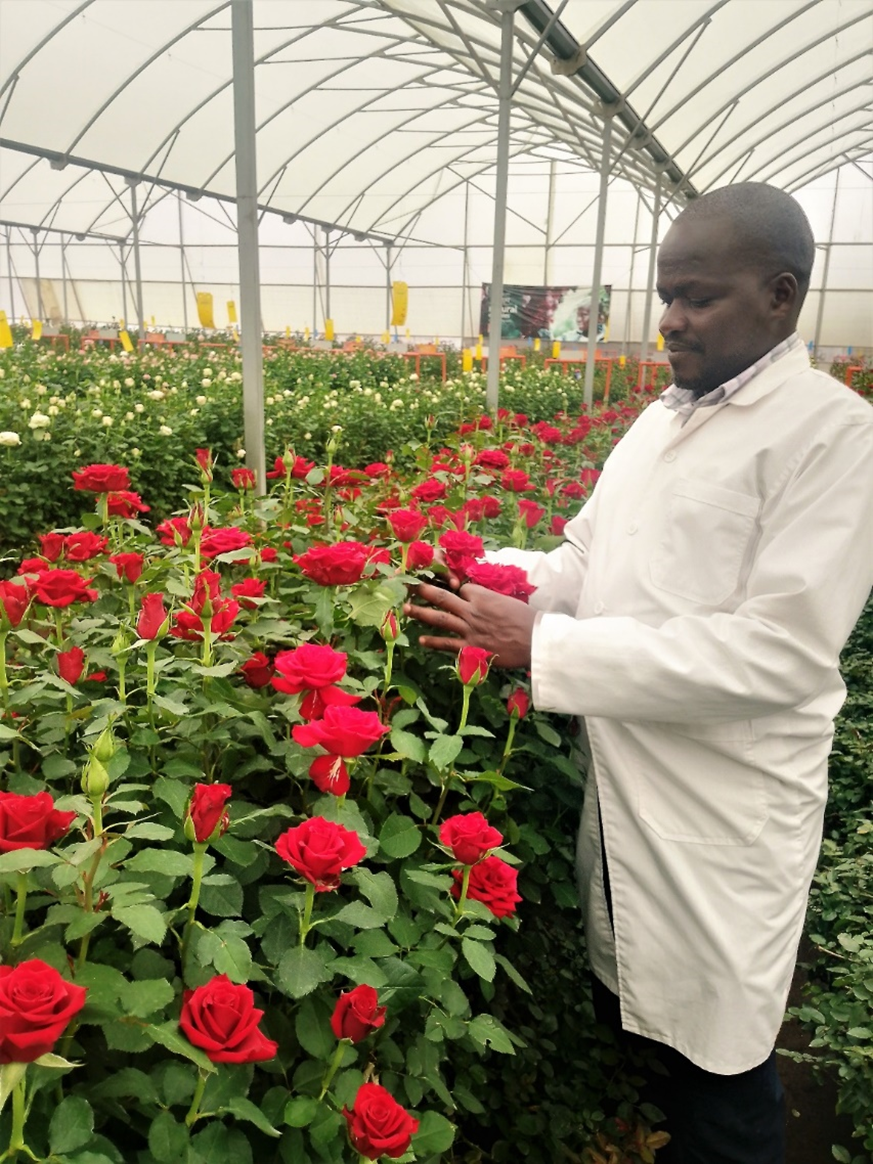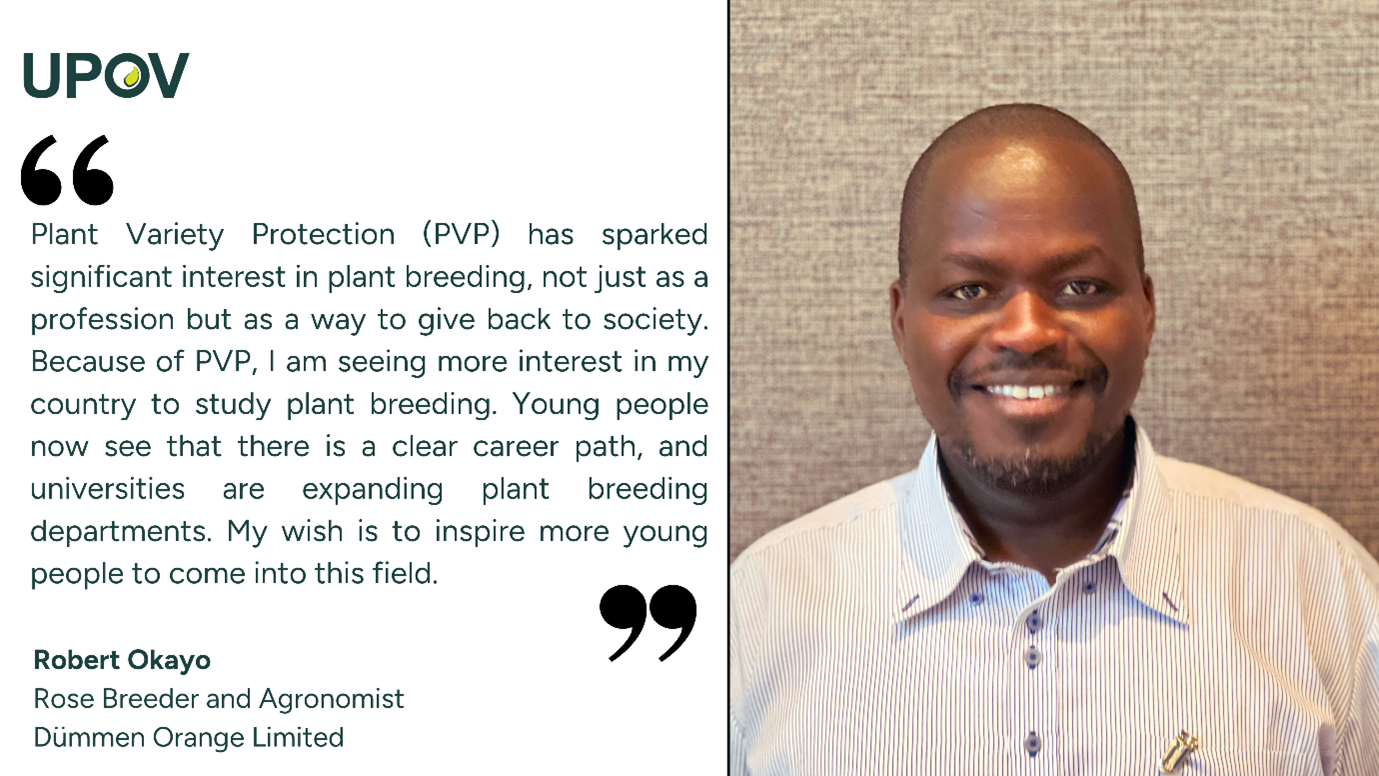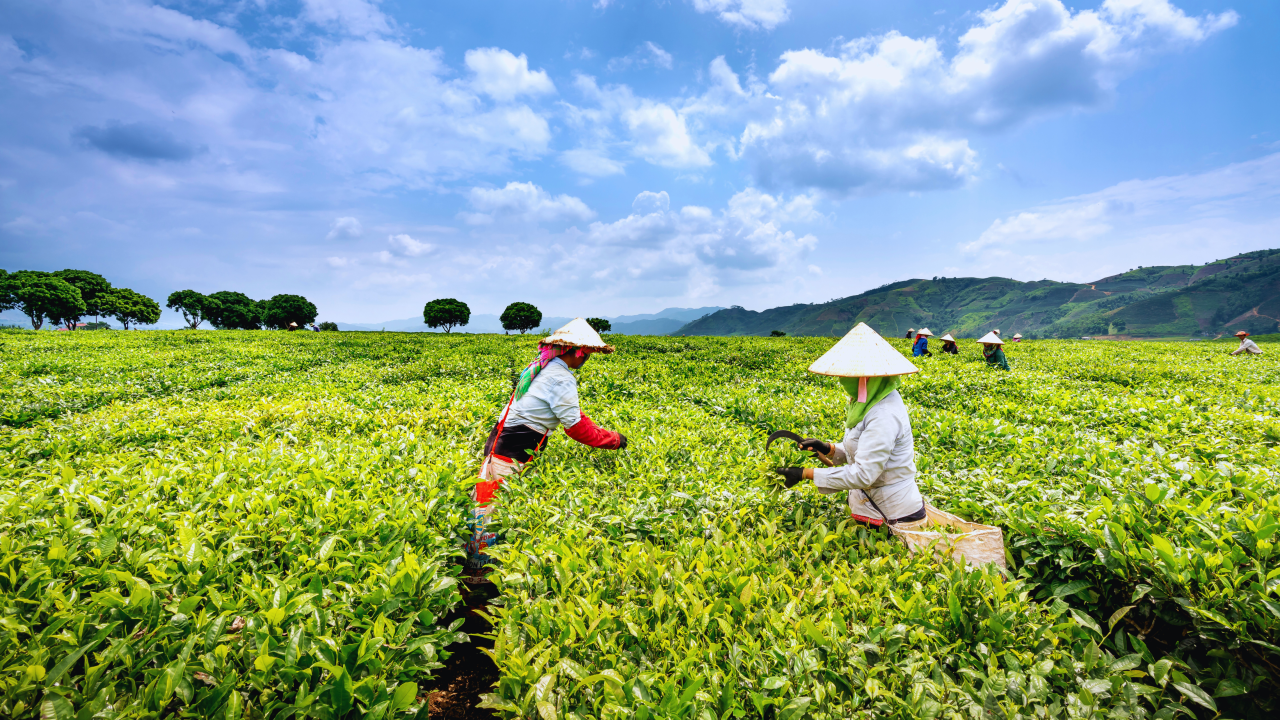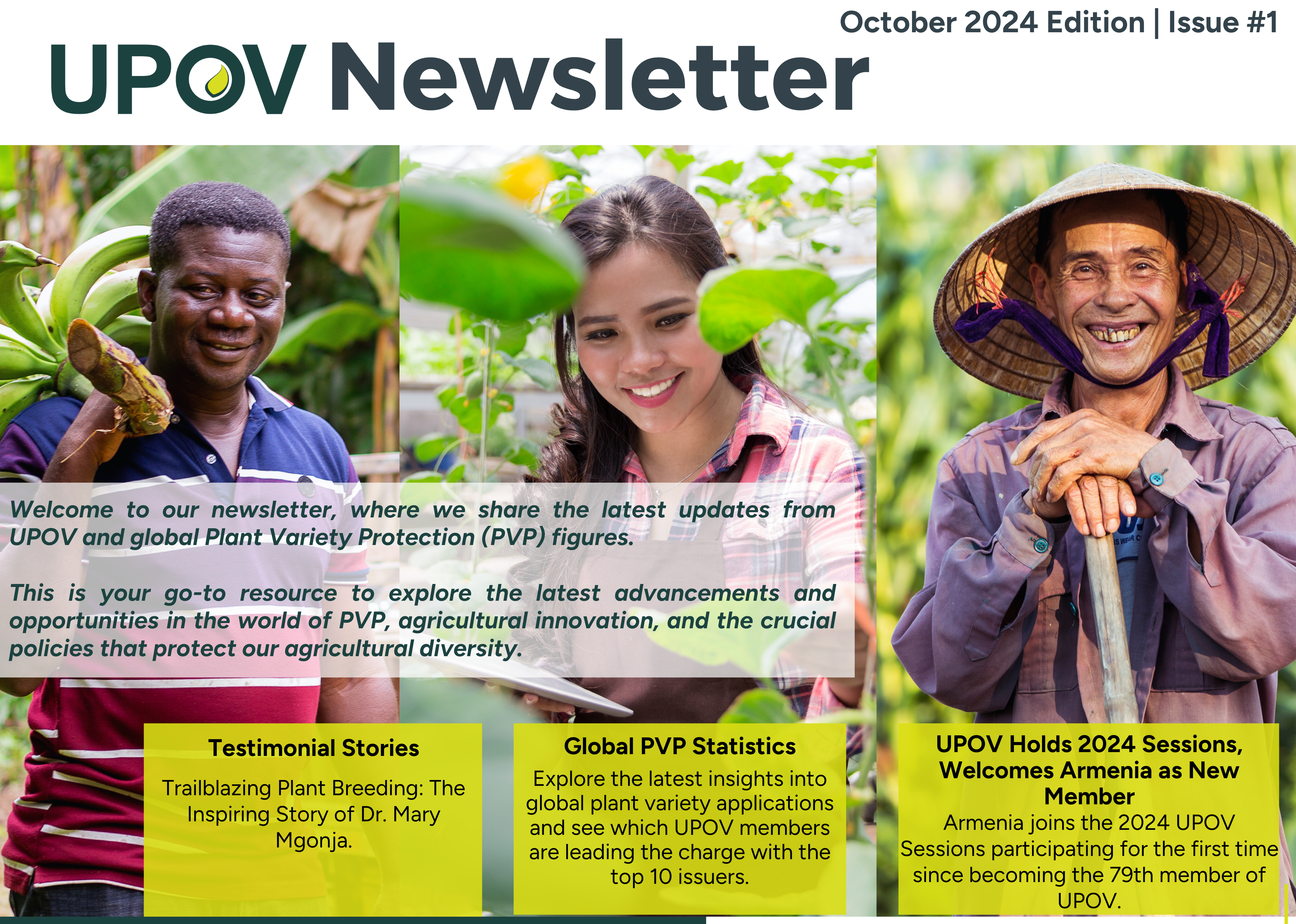Últimas novedades
| 30-jun-2025 | Robert Okayo: Championing Plant Breeding for Community Impact
In a small Kenyan village west of Nairobi, Robert Okayo’s journey began with humble roots in subsistence farming. By the age of six, he already knew he wanted to "bring science into what he saw his family and community were doing”. This perspective was sharpened when he entered university to study horticulture and agronomy, drawing inspiration from professors specializing in plant breeding and genetics. He was fascinated by their deep knowledge and practice of plant breeding and genetics to develop resilient crop varieties. This opened his eyes to plant breeding not just as a career, but as a tool to addressing broader socio-economic issues such as poverty alleviation and rural development.
Currently, Robert is a Rose breeder at Dümmen Orange Limited, a leading global breeder and propagator of ornamental flowers and plants. Previously, he worked as a Research Associate with the Consultative Group on International Agricultural Research (CGIAR) in Kenya within the global maize program, specializing in breeding for biotic stress. During his time at CGIAR, Robert contributed to research initiatives focused on developing stress-tolerant maize varieties against diseases such as Maize Lethal Necrosis (MLN), Turcicum Leaf Blight, Gray Leaf Spot and Fusarium Ear Rot Disease and pests such as Fall Army Warm and Stem Borers in Sub-Sahara Africa. He also participated in the development of high-throughput phenotyping protocol for MLN screening in quarantine stations. These improved maize varieties significantly, boosted yields, benefiting both commercial and subsistence farmers across Sub-Sahara Africa. "The main benefit of these new maize varieties is increased productivity. Farmers can now harvest more from a smaller area, especially with hybrid maize, which marks a significant improvement in their performance. By adopting these hybrids, they can achieve higher yields within a shorter cropping period, unlike older varieties that struggled with drought and low productivity in the face of climate change." he stated. Beyond productivity, UPOV’s system of plant variety protection (PVP) has also played a crucial role in fostering interest and growth in plant breeding. According to Robert, an effective PVP framework encourages innovation, enabling breeders to develop resilient, high-yielding crops that benefit farmers and enhance food security. "PVP has sparked significant interest in plant breeding, not just as a profession but as a way to give back to society. Because of PVP, I am seeing more interest in my country to study plant breeding. Young people now see that there is a clear career path, and universities are expanding plant breeding departments. My wish is to inspire more young people to come into this field." Robert shares while sporting a sheepish grin.
In addition to the career prospects, plant variety protection is helping to improve food security and agricultural resilience. As a result of the growing demand for improved varieties, there are now more plant breeders and stronger breeding initiatives. “The community recognized the advantages of using elite crop varieties that are adapted to local conditions, resilient to pests and diseases, and more nutritious. This realization strengthened breeding efforts aimed at meeting these specific needs,” Robert explains. He also reckons that plant variety protection has led to broader societal benefits. “In regions where new crop varieties are developed and adopted, communities have experienced increased employment opportunities, improved road infrastructure, and support for social initiatives. A good example is the Naivasha region in Kenya, where flower breeding and cultivation have created numerous jobs, enhanced access roads, and supported community projects, such as funding for local football clubs.” He shares. As one of the world’s leading exporters of rose flowers, Kenya’s floriculture industry is a significant contributor to its economy with roses comprising approximately 66% of the country's cut flower exports, research by the Kenyan National Bureau of Statistics cites. In 2024, Kenya's total flower exports reached $USD 835 million. "Over time, I see the farms being run by local people. A good example is the farm where I work today—we only have one external person. The rest of the departments, including the breeding department that I am heading, are all local. Flower breeding here before was done by experts from Europe, but now, we are coming in. We are improving, and I see more young graduates becoming interested ." Robert said. The export of plant breeding innovations from Kenya happens through a variety of channels, including the sale of improved seeds and crop varieties, licensing technologies, international collaborations, and agricultural exports. Growing local participation in breeding programs signals a new era of innovation, with experts paving the way for a more sustainable and diversified agricultural future. Building on this momentum, Robert—a passionate advocate for education and youth—actively mentors young agronomists and budding plant breeders, breaking down complex concepts and igniting enthusiasm for the field. He believes that making agricultural careers more appealing is essential, especially in Africa, where food security remains a pressing challenge. By investing in knowledge and talent, Robert and his team are ensuring that the future of agriculture is not only resilient but drive by homegrown expertise and innovation. |
| 19-dic-2024 | UPOV Newsletter June 2025 Edition: Subscribe, Stay Informed, Stay Connected!
Image: Quang Nguyen Vinh from Pexels We are pleased to announce the latest edition of the UPOV Newsletter – a fresh way to stay informed about the latest developments in plant variety protection. Each edition will feature:
Whether you're involved in policy, research, agriculture, variety development or commercialization, we invite you to join our growing community of readers. Click the link here to subscribe now and be part of the conversation: https://www.linkedin.com/pulse/upov-newsletter-june-2025-edition-upov-official-ijiae/
|
| 25-oct-2024 | UPOV Newsletter (October 2024)
|



